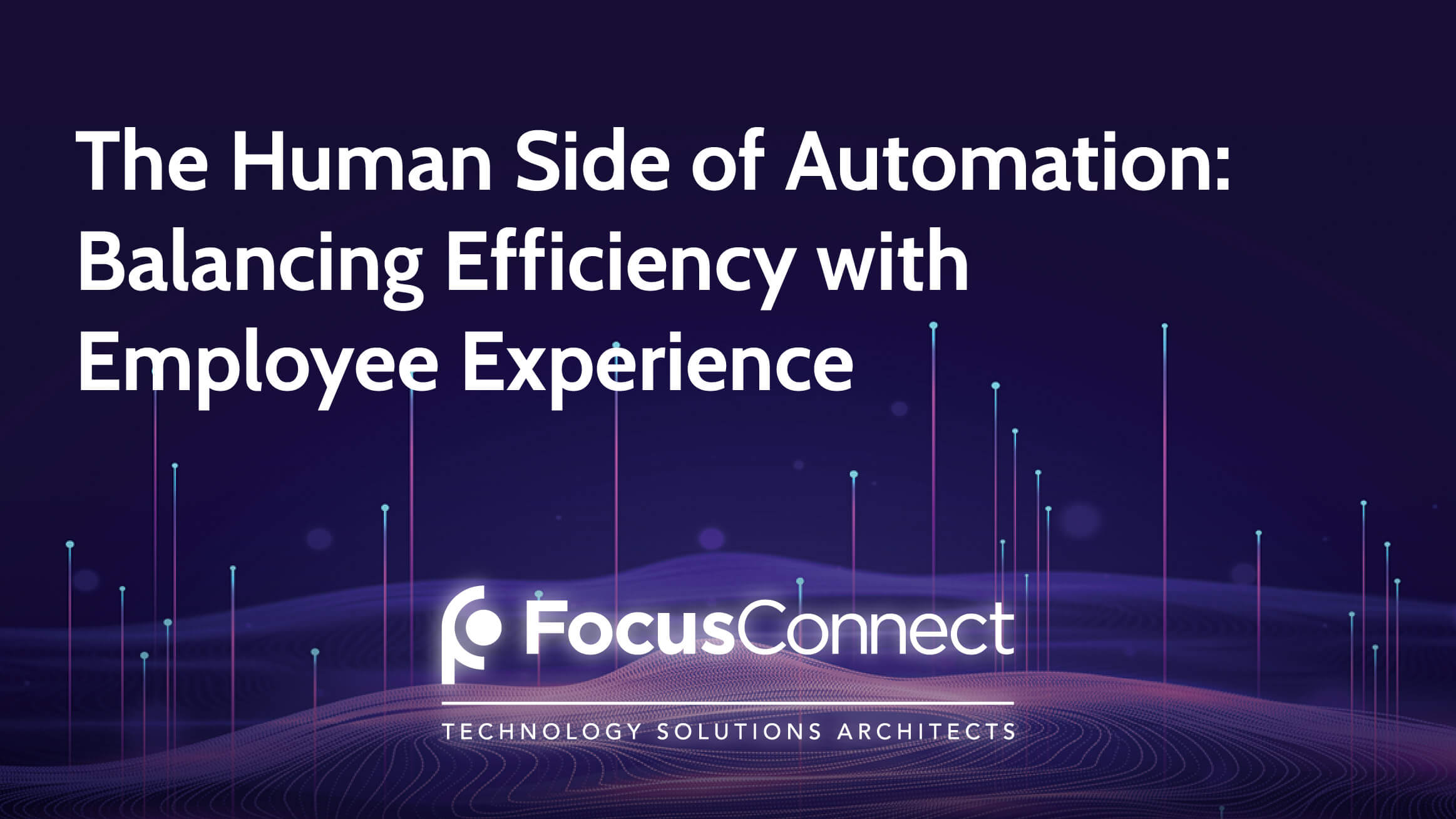Today, businesses are increasingly turning to automation to streamline operations, reduce costs, and improve service delivery. From managed IT services to cloud migration support, automation is revolutionizing how organizations operate. However, as companies embrace technologies like remote monitoring and management (RMM) and endpoint management solutions, it’s crucial not to lose sight of the human element—employee experience.
Why Automation Is Essential
Automation offers undeniable benefits:
- Efficiency Gains: Tasks that once took hours can now be completed in minutes.
- Cost Reduction: Companies can reduce IT costs with managed service providers (MSPs) by automating routine processes.
- Scalability: Scalable IT solutions for growing businesses allow organizations to expand without proportionally increasing overhead.
- Security: Automated managed cybersecurity services and threat detection and response services help protect sensitive data and ensure compliance with regulations like HIPAA (Health Insurance Portability and Accountability Act) and PCI DSS (Payment Card Industry Data Security Standard).
These advantages make automation a cornerstone of modern IT infrastructure management and cloud computing services.
The Employee Experience Challenge
Despite its benefits, automation can inadvertently impact employee morale and engagement. Common concerns include:
- Job Displacement: Employees may fear that automation will replace their roles.
- Loss of Autonomy: Automated systems can reduce decision-making opportunities.
- Skill Gaps: Rapid tech adoption may leave employees struggling to keep up.
To address these concerns, organizations must adopt a human-centric approach to automation.
Strategies for Balancing Automation with Employee Experience
1. Transparent Communication
Before implementing automation tools like SIEM as a service (Security Information and Event Management) or application control software, communicate openly with employees. Explain the purpose, benefits, and how their roles will evolve, not disappear.
2. Upskilling and Training
Invest in training programs that empower employees to work alongside automation. For example, teaching staff how to use cloud infrastructure or manage data protection and backup services can enhance their value and confidence.
3. Employee-Centric Design
Choose automation solutions that enhance—not hinder—employee workflows. Tools like 24/7 IT helpdesk services and proactive IT support should be intuitive and supportive, not disruptive.
4. Feedback Loops
Create channels for employees to share feedback on automated systems. This helps identify pain points and encourages a culture of continuous improvement.
5. Hybrid Roles
Redefine roles to combine human judgment with automated efficiency. For instance, while network monitoring and management can be automated, human oversight ensures context-aware decision-making.
Case Study: Automation in Managed IT Services
A mid-sized healthcare provider implemented managed IT services for healthcare, including HIPAA-compliant IT services and secure cloud migration services. Initially, staff feared job loss. However, by involving employees in the transition, offering training on cloud security best practices, and redesigning roles to focus on patient engagement, the organization saw:
- 30% increase in operational efficiency
- 25% improvement in employee satisfaction
- Enhanced compliance and reduced cyber risk
The ROI of Human-Centric Automation
Balancing automation with employee experience isn’t just ethical—it’s strategic. Companies that prioritize both see higher retention, better performance, and stronger brand reputation. The ROI of outsourced IT support increases when employees are engaged and empowered.
Putting it All Together
Automation is here to stay, but it must be implemented thoughtfully. By integrating technologies like zero trust security architecture, multi-factor authentication (MFA), and cloud disaster recovery planning for healthcare with a focus on employee well-being, businesses can achieve the best of both worlds: operational excellence and a thriving workforce.
FocusConnect is a Denver-based managed IT services provider committed to collaboration, innovation, and leadership. We specialize in delivering secure, scalable solutions that align with today’s evolving industry standards—never yesterday’s. Our expert team empowers organizations to enhance cybersecurity, streamline operations, and reduce costs through tailored strategies designed to grow with your business. Partner with FocusConnect to future-proof your IT infrastructure and drive sustainable success.


